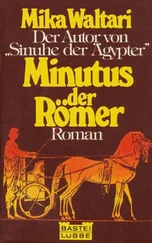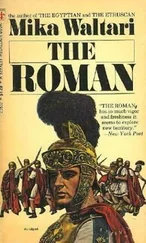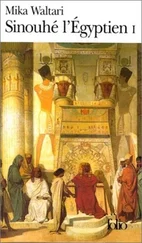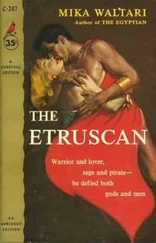At the beginning of winter the Sultan and the Grand Vizier returned with the army from the campaign in Hungary, after striking terror to the hearts of all Christendom and revealing the formidable might of the Ottoman Empire. For five days there were celebrations in the city and the nights were bright with bonfires. From the arsenal, colored fiery serpents sprang into the air, and burning oil was poured upon the waters until waves of fire rolled over the dark surface of the Golden Horn.
In this joyous tumult discord was drowned. The price of slaves dropped, the spahis found cheap labor for their farms, and the Sultan distributed lavish presents among his janissaries, so that harmony and peace prevailed. The people are ever willing to forgive the errors of princes, but upstarts come off less lightly. Nevertheless, Ibrahim was too proud to show how deeply he was hurt by certain stifled murmurs.
He would not allow himself to be blinded by his own proclamations of victory, or by the fireworks that he had commanded. From the steps of his palace he surveyed with a wry smile the crowds that filled the Atmeidan, and said, “War was inevitable, Michael el-Hakim. The Western menace has been removed and the time has come to set our faces to the East. Spread the news as widely as you can, and above all tell your remarkable wife, that she may bring it to the knowledge of Khurrem-sultana.”
Throughout the winter and spring Ibrahim had great need of my services. Besides an ambassador from King Ferdinand, there arrived also one from Venice to claim recompense for the service rendered us in Preveza Bay. The Venetian colony in Galata received their envoy with high honors. The Sultan, in token of his displeasure with the sea pashas, promoted the Young Moor to the command of four war galleys with which to blockade the port of Coron in Morea, recently captured by Doria. To show how lightly he valued Coron compared with Hungary, he sent thither battle-scarred old Jahja-pasha with five thousand janissaries and the curt command to decide for himself which he valued most: his own battered head or a horsehair switch at the top of Coron tower.
The Young Moor blockaded Coron from the sea, but in the summer Doria came cruising off the point with the united navies of the Pope and the Knights of St. John, meaning to break through to the fortress with provisions and powder. The sea pashas, enraged by the Sultan’s disfavor, followed the Moor with some seventy sail to Coron, where the young hero, crying on the name of the Prophet, bore down upon Doria and threw his supply ships into confusion, heedless of the guns cf the terrible carrack. For very shame the sea pashas were compelled to take a hand.
Doria now found himself forced into open battle, though his intention had been merely to run the blockade and then make of! at once. The Young Moor sank several transports while others were driven onto the rocks. Then he attacked the first of the Knights’ galleys, hove grapnels over her rail, and had already captured her by the time the sea pashas came to his support.
Amid the roar of cannon that echoed among the hills, amid the billowing, concealing smoke, the splintering of oars, and the yells of the combatants, the Young Moor showed the pashas how sea battles are fought. And these worthies in their fright forced their way in among Doria’s vessels to form a ring about the galleys of the Young Moor, whom they dragged forcibly from the deck of his prize. He was wounded in the head, arm, and side, but still he wept and cursed and cried to the devil for aid. After rowing aimlessly hither and thither and colliding with one another, the valiant pashas at last extricated themselves from the enemy and removed the Young Moor’s two remaining galleys to safety.
Doria, greatly startled by the unexpected belligerence of the sea pashas, did not attempt pursuit, but was content to land his supplies with all speed and stand away for home. The sea pashas Zey and Himeral at first could not believe in their glorious victory over the hitherto invincible Doria; then, in triumph, they hoisted all their flags and pennants and even unwound their turbans to stream them in the wind, amid the noise of trumpets, drums, and cymbals. The only flaw in their triumph was the unseemly behavior of the Young Moor, who with clenched fists and tears of indignation abused the pashas as cowards and traitors.
But who could long harbor resentment on so glad an evening? They freely forgave the stripling on the grounds that he was delirious from fever, and bound him to his cot lest he leap overboard.
Nevertheless the boy was cheered by Jahja-pasha who, having followed the course of the engagement from the shore, rowed over to the Moslem flagship that evening, bawling curses all the way until the most hardened sea janissaries turned pale. Once aboard, this doughty warrior, whose head was the stake in the game for Coron, seized Himeral-pasha by the beard and smote him in the face. The one object of the naval action, he screamed, had been at all costs to prevent the relief of Coron, and by failing in this simple task the pashas had prolonged the siege possibly for weeks, though Coron had been on the point of capitulation. The sea pashas saw that the fear of losing his head had made him mad, and with united strength they cuffed and buffeted him back into his boat.
Yet because of the foolhardy conduct of the Young Moor, not all the supply ships had reached the fortress, and a state of famine still prevailed there. The Greek inhabitants of the town lacked the endurance of the Spaniards, and during the night they crept beyond the walls in search of roots and bark. Some of these men fell into the hands of Jahja’s janissaries and at his orders were gruesomely tortured next morning in full view of the garrison. This spectacle had its effect; the Spaniards surrendered and were permitted to embark and sail away with full military honors.
Thanks to the agents of the Knights of St. John, Doria kept abreast of Seraglio affairs and was well aware that Sultan Suleiman had offered Khaireddin the command of all his ships, ports, islands, and seas. It was said that Khaireddin welcomed this appointment with tears of joy, and having left the reins of government in the hands of his young son Hassan-under the guardianship of a trustworthy captain-he at once set sail for Sicilian waters in the hope of cutting off Doria’s retreat from Coron and crushing him between the Algerian vessels and the Sultan’s fleet, which he naturally supposed would give chase. Doria eluded him, however, and after a profitable engagement with a pirate, Khaireddin sailed away with his prizes to meet the sea pashas. These received him with the proper honors, though grudgingly, and Khaireddin reviled them for their cowardice and their failure to do their part in the capture of Doria. He then ordered them to release the Young Moor, whom he embraced and treated like his own son.
All this I learned from hearsay, but that autumn I saw for myself how Khaireddin’s forty ships glided majestically up the Marmara and anchored in the Golden Horn. From Scutari on the Asiatic side to the hills of Pera, the shores were white with people, and the Sultan himself stepped onto his marble quay to watch the vessels pass. Their thunderous salute echoed over land and sea and was answered by the guns of other ships anchored in the harbor. The most eminent pashas and renegade captains made haste to greet Khaireddin as he stepped ashore.
Khaireddin stood beaming under a gold-fringed canopy to receive the manifold welcome. His once-red beard was now venerably gray, and reached, with some artificial aid, to his belt. He had painted wrinkles on his face and shadows about his prominent eyes, so as to vie in age with the Sultan’s sea pashas, though I believe he was then not a day over fifty.
The inhabitants of Istanbul had much to divert them during this time. On the third day after his arrival Khaireddin set off in ceremonial procession to a reception at the Seraglio. He was attended by janissaries in red and gold, and a hundred camels followed laden with gifts for the Sultan-bales of silk and brocade and such curiosities as an uncultured pirate would collect in the course of years. Worthless trash and priceless treasures lay higgledy-piggledy together. The greatest sensation was aroused by two hundred lovely young girls bearing gold and silver dishes in which lay purses filled with gold and silver coin. These slaves had been selected for the Sultan’s harem from every known land, though the greater number were from Sicily, Italy, and Spain. When with faces unveiled they bore their treasure into the Sultan’s presence even the staidest Moslems were dazzled by their beauty; they were obliged to hold their hands before their faces and only peep through their fingers, lest they be brought into a state of impurity before the hour of prayer.
Читать дальше











